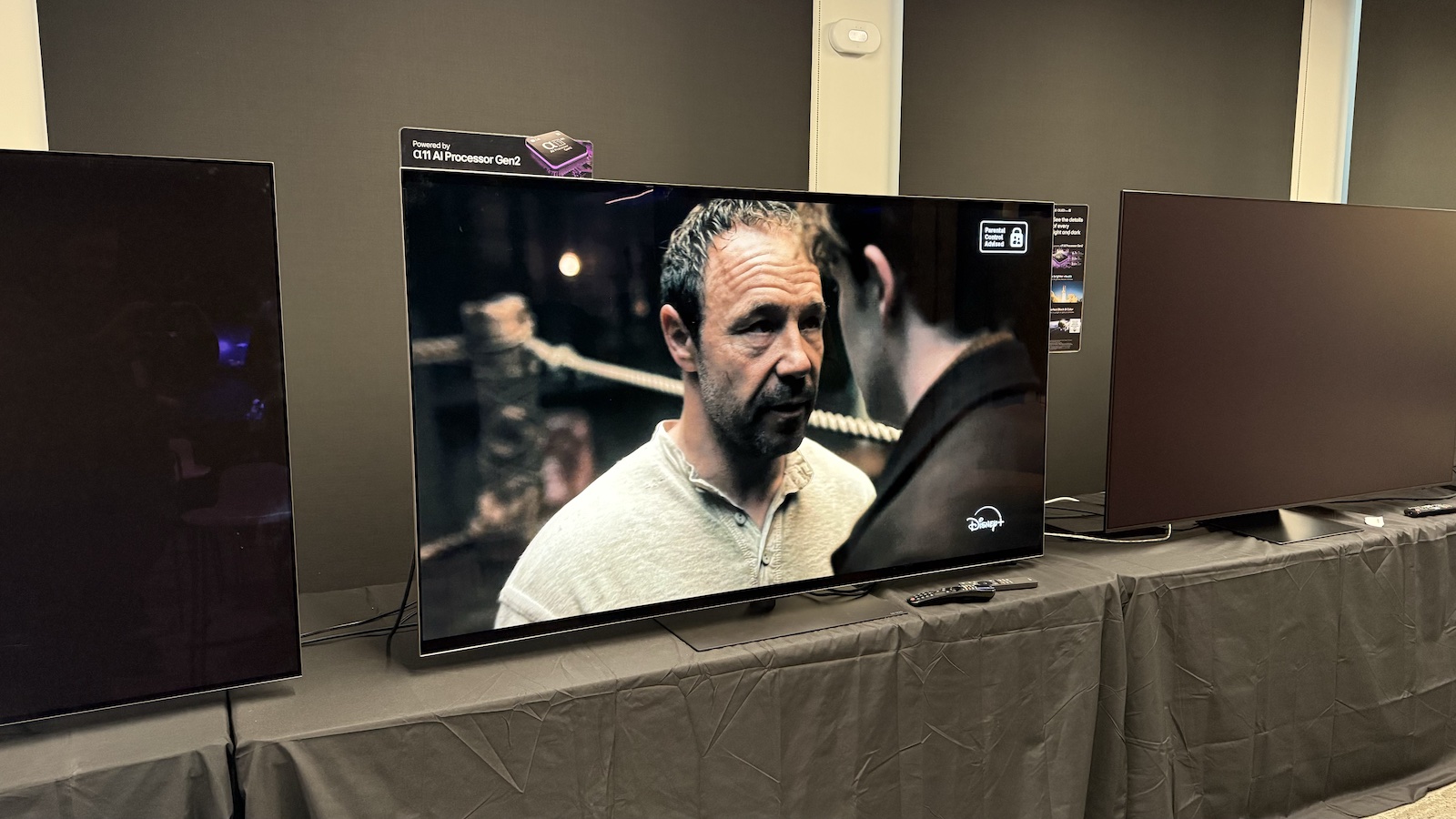
While LG’s 2025 TVs were announced at CES in January, we were treated to a more in-depth introduction to the new range late last month. This event, during which I was able to see the new G5 and C5 in action for the first time, left me with three key takeaways: first, the G5 appears to be a much bigger upgrade over the G4 than I expected; second, that there are now more ways than ever for you to screw up your TV’s picture quality (but also more ways to get it right); and, third, that LG still really doesn’t care about HDR10+. It's that last point that I want to dig into here.
For those not in the know, HDR10+ is a dynamic HDR format that adjusts contrast in real-time to maximise picture quality based on the content currently playing and the performance parameters of your TV. In many ways, it’s like Dolby Vision, which is the other dynamic HDR format currently in use, primarily in that it can result in a punchier and better-balanced HDR performance than is offered by the ‘static’ HDR10 and HLG formats.
Samsung is the brand behind the development of HDR10+ and promotes it as a royalty-free alternative to Dolby Vision. Its TVs predictably support that format but not Dolby Vision. LG, on the other hand, has always supported Dolby Vision but not HDR10+, and it doesn’t sound as if that is going to change any time soon – or perhaps even ever.
When asked whether it’s perhaps time for LG to consider supporting HDR10+, given that more streaming services now carry content in the format, LG’s Maarten-Joost Möller replied that “it’s still not a thing, not for us”, and pointed out that “those [streaming services] that offer HDR10+, they offer in Dolby Vision also”.
What’s more, he claims that if you compare HDR10+ with HDR10 supported by LG’s Dynamic Tone Mapping, the latter is “better – it’s way better”. This is primarily why he says that "we don't believe in [HDR10+], and I think we won't ever".
While I’m not sure either way on that point about HDR10 with Dynamic Tone Mapping being better than HDR10+ without doing some fresh testing on the brand’s new TVs, I broadly understand LG’s ambivalence towards HDR10+, even if some of that sentiment comes from a reluctance towards supporting a technology developed by its arch rival.
The way I see it, while Dolby Vision and HDR10+ are similar in that they are both dynamic HDR formats, they are otherwise quite different propositions: as well as adapting to the content and your display, Dolby Vision is designed to deliver content as the creator intended in terms of other picture elements such as colour and motion. The same can’t be said for HDR10+, and that makes it less valuable as far as I’m concerned, despite its increasing presence on streaming services.
That isn’t to say that LG shouldn’t support HDR10+, and many buyers will be drawn to brands such as Panasonic, Philips, Hisense and TCL, which tend to support both Dolby Vision and HDR10+ – but LG’s stance is neither surprising nor, as I see it, a reason to avoid its TVs.
MORE:
Check out our LG C5 review
Here are the best TVs you can buy right now
And these are the best TV deals







